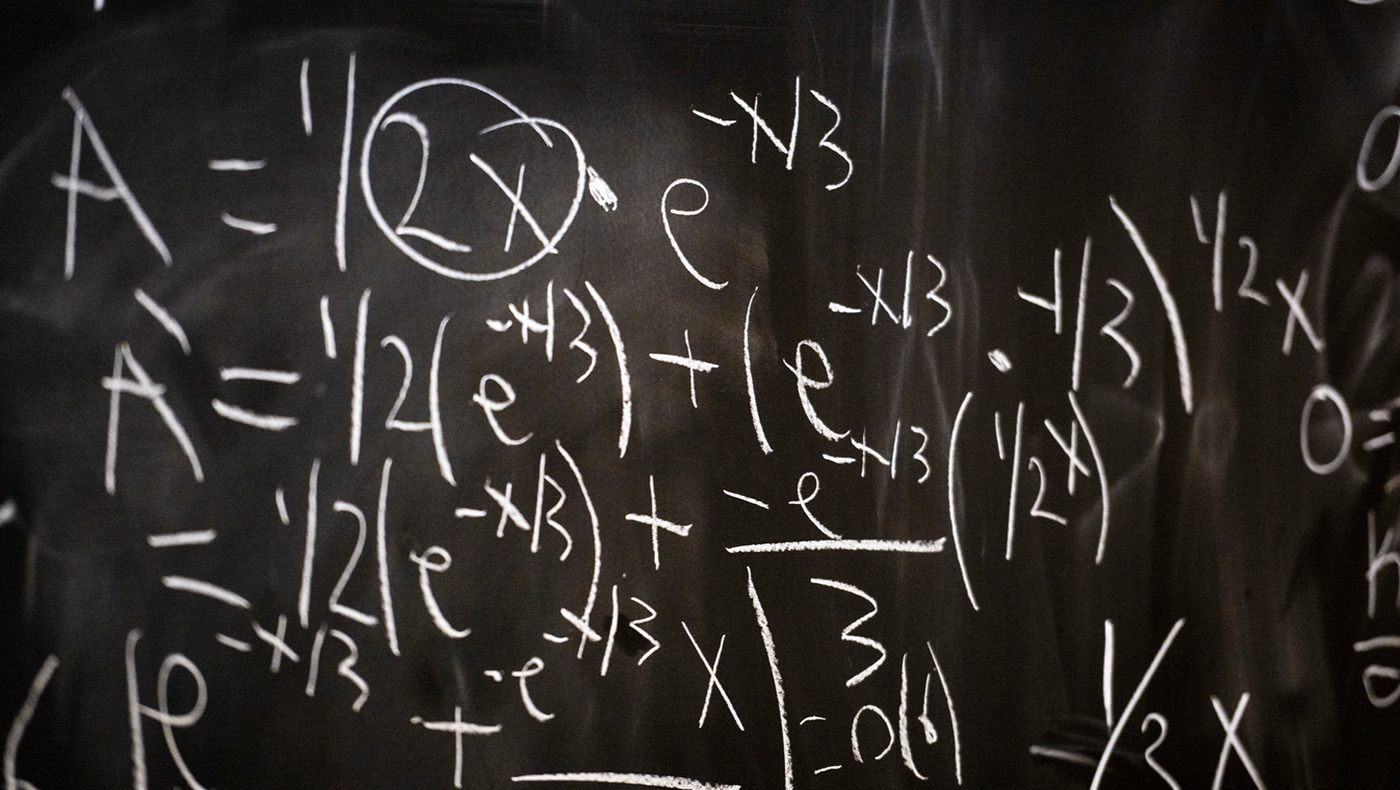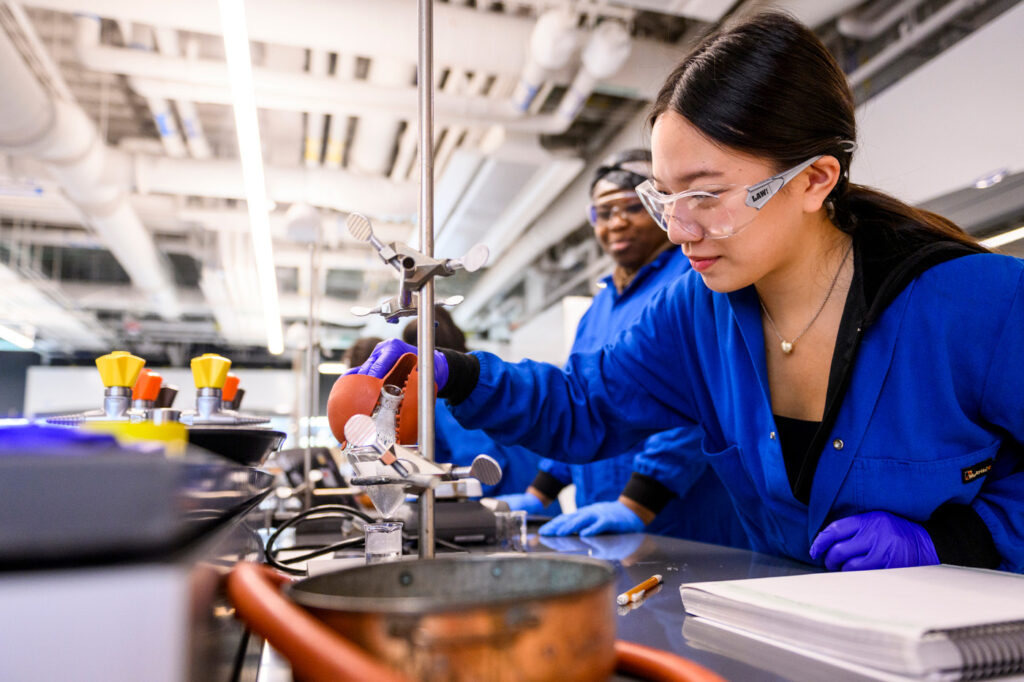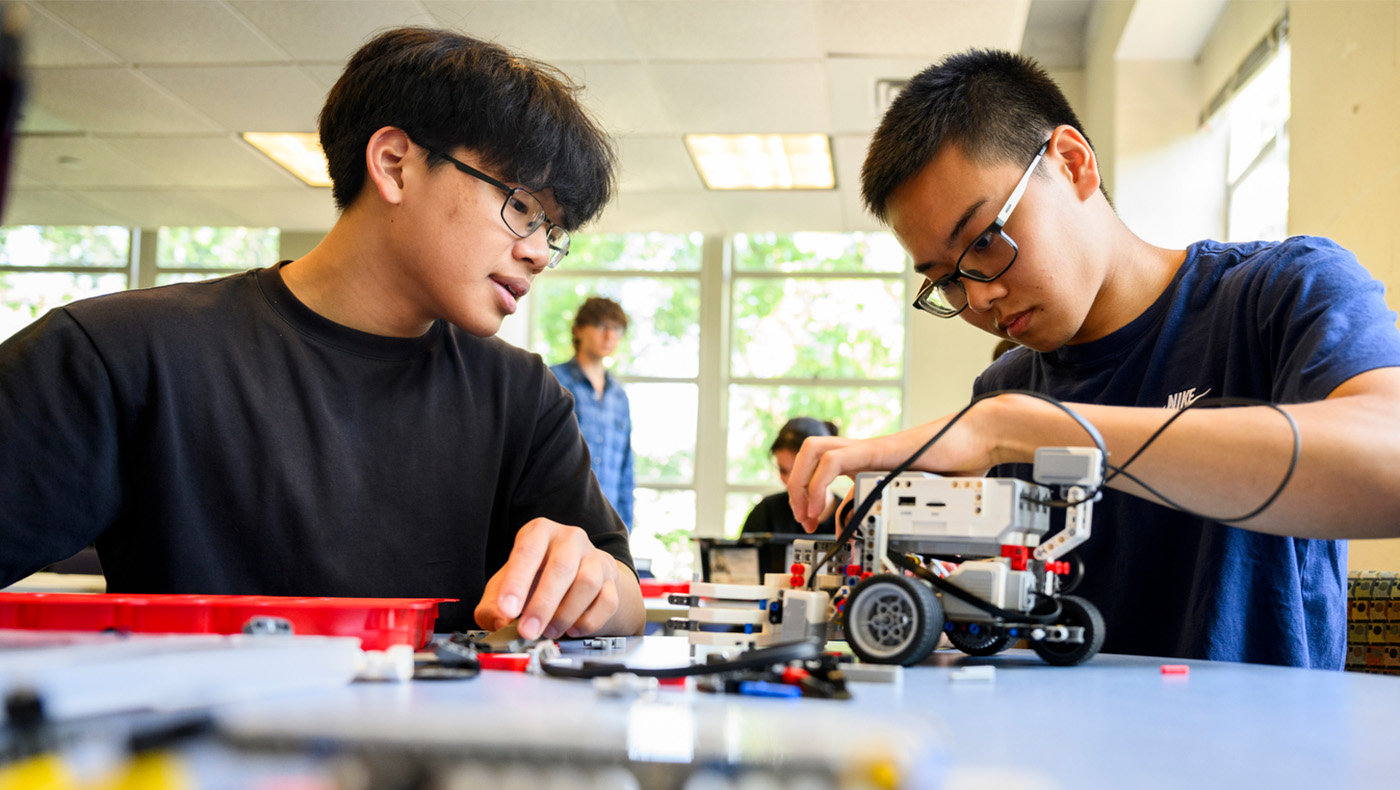
Physics
Why can’t light escape a black hole? What exactly is dark matter? Why is the gravitational force so weak? In physics, we know everything is bound by the same rules and happens for a reason. It’s the “why” of every action and reaction that keeps us curious.
Faculty Research Areas
-

Astrophysics and Cosmology
This group conducts cutting-edge research into the nature of the universe, including dark energy, large-scale structure, galaxy clusters, black holes across all mass scale and neutron stars, dark matter searches, and MeV gamma-ray observations
-

Experimental Biological Physics
The experimental biological physics group develops and applies experimental techniques to study biological entities at various scales from biomolecules to cells to organisms.
-

Experimental Condensed Matter Physics
Faculty in the experimental condensed matter physics group are the forefront of research in nanophysics and novel materials
-

Experimental Particle Physics
This group works on the Compact Muon Solenoid (CMS) experiment at the Large Hadron Collider (LHC) at CERN. They study precision measurements of Standard Model processes and search for signatures of new physics, such as leptoquarks, dark matter candidates, and exotic production and decays of Higgs bosons.
-

Network Science
The Network Science group seek to discover and inspire fundamentally new ways to measure, model, predict, and visualize meaningful interactions and interconnectivity of social, physical, and technological systems.
-

Theoretical Biological Physics
In this group, members apply theoretical and computational tools of statistical and nonlinear physics to understand fundamental aspects of the behavior of living systems across molecular to organ scales in health and diseases.
-

Theoretical Condensed Matter Physics
Faculty apply theoretical and computational tools to study the quantum properties of condensed matter (solid state) systems. A major focus within the group is understanding novel and unusual phases of matter, as well as non-equilibrium aspects of materials.
-

Theoretical High Energy Physics
Faculty in the theoretical high energy physics group apply techniques from Mathematics and AI to study particle physics, cosmology, and string theory, often with overlap between the subjects.

Research Opportunities
Our students and scientists specialize in many exciting areas of physics including quantum materials and nanotechnology, biophysics and the study of complex systems, elementary particle physics and astronomgy, and research in innovative education.
Student Research Opportunities
Through research, our students develop a practical expertise and intellectual passion for their chosen field.
Postdoctoral Training Program
The Postdoctoral Research Program in the College of Science is personalized for each postdoctoral researcher’s needs and aspirations. In addition to rich research experiences with our faculty members, our postdocs have comprehensive professional development support for a variety of career paths.
Interested in working with us?
Physics Education
Undergraduate Majors
Physics majors will gain a strong foundation in classical and modern physics, including studies of the various physical phenomena such as electromagnetism, dynamics, building blocks of matter, energy, and radiation.
This interdisciplinary degree is designed to provide students with a solid background in basic physics and the opportunity to expand their studies into disciplines like engineering, biology, chemistry, mathematics, environmental science, and computer science.
This major prepares students to understand physical processes in biological functions, such as chemical interactions with DNA, oxygen extraction in red blood cells, the generation of complex electrical signals in the brain, and the physical principles behind medical devices.
Combined Majors
This combined major brings together computer science, mathematics, and physics. From hands-on experience with sophisticated physics instruments, to mathematical theory, to the latest computational innovations, our interdisciplinary approach will prepare students for the myriad challenges in today’s rapidly changing world.
This combined major brings together data science, mathematics, and physics. From hands-on experience with sophisticated physics instruments, to mathematical theory, to the latest computational innovations, our interdisciplinary approach will prepare students for the myriad challenges in today’s rapidly changing world.
Mathematics and physics have been linked since antiquity. By combining physics and mathematics students can take closely related courses in each discipline, such as statistical mechanics and stochastic processes, mechanics and dynamical systems, thermodynamics and Fourier series, and quantum mechanics and partial differential equations.
This combined major provides a strong foundation in classical and modern physics, along with the physics of acoustic and digital audio-related phenomena, and studies of the various physical phenomena including electromagnetism, dynamics, building blocks of matter, energy, and radiation.
Physics and philosophy majors will be able to describe the method by which physical “law” is made manifest in the sciences, how this knowledge compares with other epistemological models studied in other contexts, and philosophical views on the status and source of physical “law.”
Students in this cross-college program will understand the fundamental physics behind many chemical-based processes, resulting in the ability to design and practice in the field of engineering that deals with the movement of mass, heat transfer, and reactions involved in the processing of various materials.
This cross-college combined major serves students who would like to explore their interest in physics while earning the benefit of an accredited Bachelor of Science in Computer Engineering degree.
This cross-college program is a particularly appropriate course of study for students who wish to pursue a career in solid-state devices, microelectromechanical systems, or nanotechnology.
This cross-college program takes advantage of the physical similarities between mechanical engineering and physics, providing students the opportunity to study both topics. The program culminates with a mechanical engineering capstone design.
Undergraduate Minors
The minor in astrophysics provides a foundation in classical and modern astrophysics at an undergraduate curriculum level and helps students explore some of the most groundbreaking recent discoveries that shape our current understanding of the universe.
The physics minor provides a foundation in classical and modern physics and allows students to explore more advanced topics in physics through elective choices.
MS Degree Programs
This program prepares students to tackle challenges and opportunities in healthcare through hands-on training in nanomedicine research, innovation, and commercialization, along with a full-time co-op experience.
Graduate Certificates
Accelerated Programs
Our Accelerated PhD program allow students to pursue an advanced degree in a condensed period of time.
Students will have the opportunity to study specialized subfields, such astrophysics and cosmology, biological physics, condensed matter physics, elementary particle physics, and network science.
PhD Programs
Doctoral candidates gain a broad background knowledge-base and an in-depth study of specialized areas of biology including cell, developmental and regenerative biology, biomechanics, and neurobiology and behavior. Students can choose to pursue a concentration in cell and molecular biology or molecular biology.
Students will have the opportunity to study specialized subfields, such astrophysics and cosmology, biological physics, condensed matter physics, elementary particle physics, and network science.
Through the Connected Science Community PhD program, students have the opportunity to participate in the Summer Skills Session the summer before their first year to meet fellow PhD students, develop key skills, explore university resources and learn about post-PhD careers.
Experiential Learning
-

Cooperative Education
Many students choose to participate in the university’s signature co-op program because if offers excellent preparation and exposure to exciting careers. Physics students have gained invaluable experience at internationally renowned facilities such as CERN, the largest particle physics laboratory in the world and through research in Northeastern labs, start-up hi-tech companies, and established facilities including Draper Laboratory, MIT Lincoln Laboratory, and Harvard Medical School.
-

Global Experiences
Northeastern University provides students with intercultural learning and transformative experiences. Through programs like Study Abroad, Dialogue of Civilizations, and opportunities to study at one of Northeastern’s global campuses, you will deepen your knowledge of the world and your chosen field of study, explore international career opportunities, and grow as a global individual.
-

Entrepreneurship
Our Science Connects to Innovation Program empowers undergraduate science students through education, resources, and networks to create entrepreneurial solutions—spanning cleaner energy, eco-friendly pesticides, potential anticancer compounds, sustainable foods, and high-tech assistive devices.
Ready to apply?
Belonging and Engagement
The College of Science supports a culture where each person feels they belong, regardless of race, color, religion, religious creed, genetic information, sex, gender, gender identity, sexual orientation, age, national origin, ancestry, veteran or disability status. We celebrate the diversity of our community, and we seek to create a space where everyone belongs to further excellence. We commit to being a College where members act with respect, trust, collaboration, and communication, and where inappropriate behavior is reported and acted on without fear of retaliation.
Student Stories
Upcoming events
-
Sep 16
-
Sep 22
-
Sep 23
-
Oct 20
-
Oct 21
-
Nov 17
-
Nov 18
-
Dec 9
Physics in the News
View all StoriesKeep up with Physics Department

Contact Us
111 Dana Research Center
360 Huntington Ave.
Boston, MA 02115
Graduate Programs
[email protected]



















